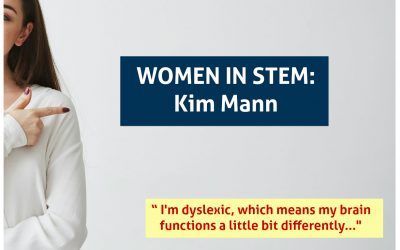Recently, I had the pleasure of talking to Tabitha Mancini, Director of Winston in College Online. Winston recently became a sponsor of this Dyslexic Advantage community, but I've known Tabitha for over a decade. She's been active in the learning support of...
Dyslexic Cognition and Processing Speed [Premium]
Processing speed can be a very frustrating aspect of dyslexia and dyspraxia. It doesn’t have its own DSM diagnosis code and in truth, processing speed in the context of dyslexia and or dyspraxia have very different sources. Some people think that it doesn’t matter what the source of the speed problems are, but I think it’s more important than people realize. Most people in the dyslexia field don’t have the experience of being a neurologist – but it’s a pity that more people haven’t had those experiences. If you have assessed people throughout the life cycle (kids through adults) and in the setting of disease (like brain injury) or learning difference (like dyslexia), there are dramatic differences that affect learning and communication. Common issues that […]
Strengthening Executive Function Skills [Premium]
“Reading isn’t the most challenging part of dyslexia. It’s the executive function…” Executive function consists of different sets of processes in the brain that act like executives in business. Executives supervise all the activities and resources – organizing and prioritizing activities, developing plans, and making sure actions are properly executed. CHALLENGES AMONG CHILDREN AND ADULTS Executive function challenges that are commonly reported among dyslexic children and adults include limitations in working memory, task monitoring, inhibitory control, set-shifting, and organization (read more here). What that pattern also often means is that learning and working efficiency is at its best when information and tasks can be processed in smaller bits, a system is developed for checking and double-checking work, non-distracting learning and work environments are essential, and […]
Strength-based Thinking and Communication through Metaphor [Premium]
“Since dyslexics are visual learners and thinkers, I make sure to integrate that into how I work throughout the day. I always approach architecture decisions via white-boarding. I use metaphors when I explain things to other people or when I try to reason about the problem space in my head…” – Josh Brunner, from Embracing Dyslexia as a Software Engineer An interesting thing happened when researchers (sorry free abstract only) set out to study figurative language in dyslexic and non-dyslexic people. Dyslexia is often referred to as a “language learning disability” and in the usually deficit-focused literature, there have been plenty of studies that might have suggested figurative language could be problematic – but Kasirer and Mashal also were aware of the creativity literature […]
Dyslexics Needs to Meet the Demands of the Future
CNBC had a welcome article about how important dyslexic employees are for increasing demands for creative thinking, design, and leadership. Their review was based on the Ernst and Young research paper The Value of Dyslexia. Excerpt: "dyslexic individuals have...
Women in STEM: Kim Mann
Kim Mann is a software architect, and she might not have found her career path if a 9th grade geometry teacher hadn't decided to allow Kim to solve problems her own way. Up until this point, Kim had always been penalized for using her own ways of solving a problem...
Surviving and Thriving Without College
Just over 1/3 of the U.S. adult population has a 4-year college degree, but as tuition rates skyrocket, many dyslexic families with young people might reasonably ask - "Is it worth it?" or even "Do I even want it?". Even if we know in theory that we want our children...
DYSNIE! Dyslexia at Disney
Joan Bohan is a finance executive at Disney France. Joan found our book, The Dyslexic Advantage and the Dyslexic Advantage community after discovering that her son was dyslexic. Over the past few years, it's been exciting to hear how she was able to spearhead positive...
[PREMIUM] Multisensory Masters
Often when the term “multisensory” is used when talking about dyslexia, math manipulatives or Orton-GIllingham curricula are what come to mind. But multisensory is much more than its association with education. Multisensory abilities and talents account for many super powers that dyslexic people use in their every day success. Strong multisensory learners may learn well by immersion, real life experiences with social interaction, personal connections, movement, and hearing, seeing, touching (and yes also smells and sometimes tastes). Some multisensory experts show expertise in certain sensory modalities – like being visually aware or particularly sensitive or having an ear for music or different aspects a peoples voices. People Reading Skills in reading people’s emotional expressions, gestures, and nonverbal cues can lead to super skills in fields […]
DYSLEXIA AND THE NURSING PROFESSION
‘‘Nurses with dyslexia [. . .] can use a multidimensional approach to patient care and can visualise a patient as an integrated whole. They can connect with a patient in way that integrates the art and science of nursing...(Dyslexic nurses) use ‘‘novel and creative...
Dyslexia and Firefighting [PREMIUM]
In some fire stations where members are outspoken about their dyslexia, an over-representation of dyslexia has been noted. Why is this? Firefighting is a intensely active profession where strengths of situational awareness, dynamic spatial problem solving, and teamwork all come together. Firefighting especially demands M-strengths (material reasoning), I-strengths (interconnected reasoning), and D-strengths (dynamic reasoning). In the United Kingdom, one Fire District conducted a Dyslexia Awareness program that included testing, workplace coaching, and assistive technology. They’ve identified over 70 individuals in their program so far. Dyslexic firefighters often don’t have much difficulty with the actual job of firefighting. Instead, they have trouble with timed test taking required for promotion or the paperwork and paper-based data analysis required for reporting. Here in the US, Frank Ricci is […]
DYSLEXIA AT WORK: New Skills
Q: I'm working full-time and also am a mom. My employer recently told me that I need to learn new skills to earn a higher salary. My reading and writing aren't the best. A: Sounds like you're carrying a full load! Without knowing the details of your occupation,...


![Dyslexic Cognition and Processing Speed [Premium]](https://www.dyslexicadvantage.org/wp-content/uploads/2023/02/Dyslexia-Cognition-and-Processing-Speed-Dyslexic-Advantage-400x250.png)
![Strengthening Executive Function Skills [Premium]](https://www.dyslexicadvantage.org/wp-content/uploads/2023/02/Strengthening-Executive-Function-Skills-Premium-Dyslexic-Advantage-400x250.png)
![Strength-based Thinking and Communication through Metaphor [Premium]](https://www.dyslexicadvantage.org/wp-content/uploads/2022/02/Strength-based-Thinking-and-Communication-through-Metaphor-e1644394632260-400x250.jpg)





![Dyslexia and Firefighting [PREMIUM]](https://www.dyslexicadvantage.org/wp-content/uploads/2018/11/Screen-Shot-2019-08-30-at-9.19.32-AM.jpg)














